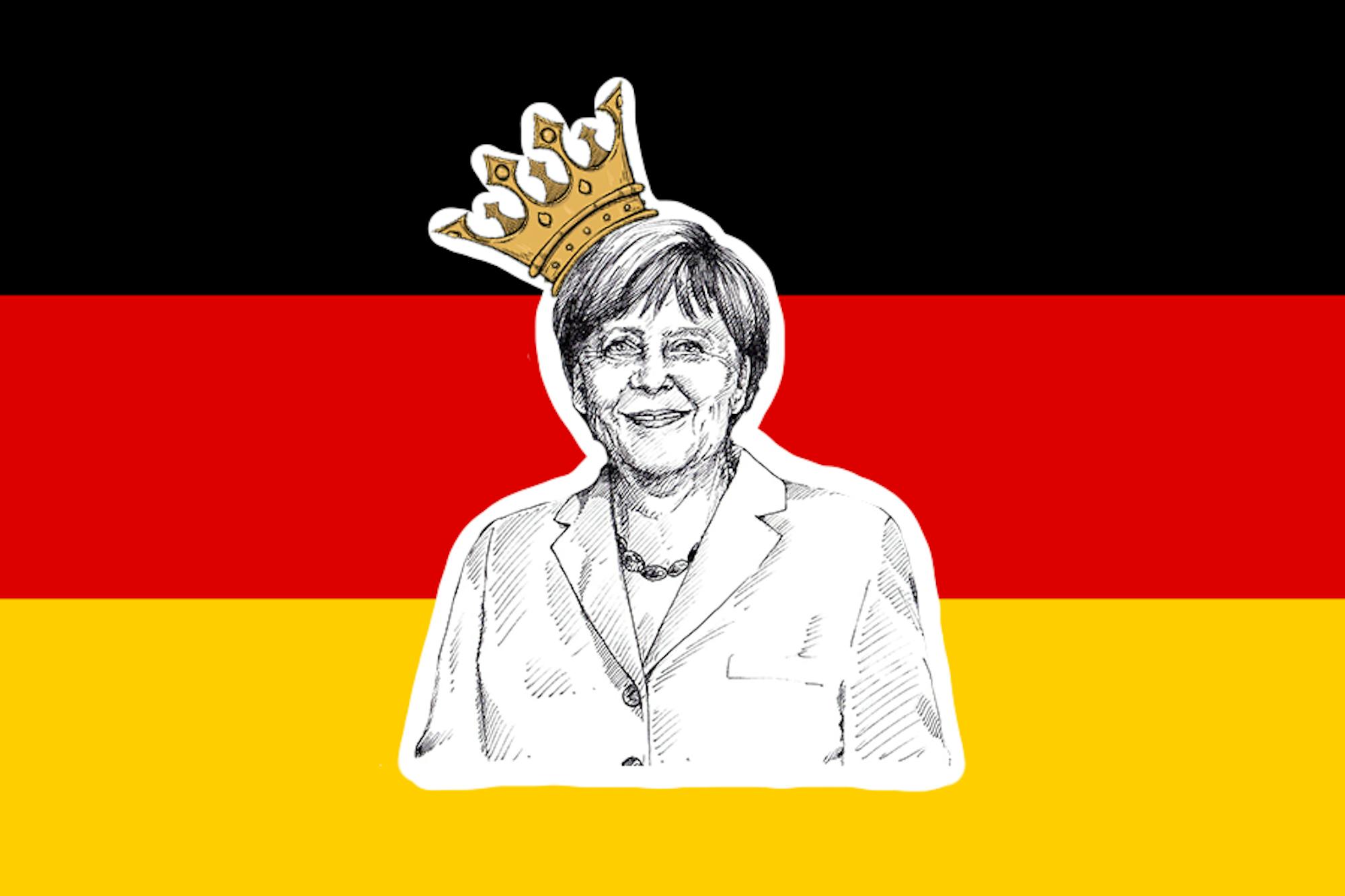Sixteen years in power. Only monarchs, autocrats and dictators last this long in office. The exception is Angela Merkel: the German chancellor who has had exceptional success in navigating the many crises she has faced.
Merkel has overseen consistent growth in the German economy, which kept the country firmly on top of all European Union members in terms of GDP. While the country’s neighbors rack up billions in debt, Germany consistently posts budget surpluses, leading to a steady decrease in national debt since 2012. Merkel has also presided over one of the most comprehensive energy transitions in history: transitioning from fission reactors to other power sources.
But it is on the European stage that Merkel shone brightest. The "queen of Europe" is credited with having prevented the implosion of the bloc after the 2008 crisis when her government advocated for tough austerity measures to be imposed on affected countries. Although this nearly drove Greece to leave the eurozone, through sheer diplomatic might Merkel managed to prevent the worst, keeping Greece in the EU and saving the shared currency and common market.
The chancellor also helped the EU navigate a refugee crisis in the mid-2010s, taking in hundreds of thousands of immigrants and famously telling the German public “we can do this.” Furthermore, she drove a harsh bargain with the United Kingdom during Brexit negotiations and forced the U.K. to make concessions and amendments to its initial plans.
Merkel's decision to step down caused a seismic shock in the German and European political landscapes. She has been a formidable campaigner, leading her party to victory in four consecutive elections. Pundit predictions that her Christian Democratic Union Party (CDU) and its Bavarian sister-party the Christian Social Union (CSU) would perform worse without her proved accurate as they saw their worst performance since their formation in the 1940s. The bloc lost its narrow plurality to the Social Democratic Party (SPD), a then-coalition partner, now favored to lead the next government. The SPD would have to negotiate with both the Greens and the Free Democratic Party (FDP) to muster a majority. These two smaller parties have diverging manifestos but have already embraced their kingmaker role. It is now up to the bigger parties to try and offer the better deal to the duo. Germany has never seen such political instability under Merkel. Some predict she might have to remain in office until 2022 and through the conclusion of coalition talks.
Throughout her 16 years in office, Merkel has rubbed shoulders with four French presidents, further highlighting her incredible longevity and the stability she secured for her country. France and Germany are known as the power couple of Europe, especially now that Brexit has concluded. There is an implicit rivalry between the two nations, but Merkel's leadership has maintained Germany's lead, ensuring that she had veto power on all European decisions.
French President Emmanuel Macron is now likely to try and claim as much influence as possible on the European front, steadily developing his country’s diplomatic leverage. Macron has painted himself as a steward of an EU renaissance, advocating for what he calls European “strategic independence.” He led the formation of the EU’s first unified armed corps and spearheaded the call for the creation of EU-wide taxes within digital and environmental sectors. With Merkel out of the picture, any incoming German chancellor with less experience and standing might give Macron room to take his project to the next level and earn greater influence on the world stage
Angela Merkel also helped ensure Germany's position as a staunch U.S. ally. The CDU is a strong proponent of NATO's 2% defense spending minimum and supports the nuclear umbrella that the organization provides. Merkel has so far rejected France’s proposal for the EU to use French weapons instead — a key part of Macron's strategic independence initiative. Nuclear weapons are unpopular in Germany; the SPD and both smaller parties are reluctant to fund an overhaul of nuclear capabilities, and the Greens flat-out oppose NATO’s 2% spending requirement. If the country doesn't purchase new aircrafts by 2024, it will lose the capability to use American nuclear weapons. NATO’s European nuclear umbrella would be massively handicapped.
On the other hand, the United States may find more foreign-policy common ground with an incoming government. While Merkel has been reluctant to criticize China — Germany’s top trade partner — the Greens and the FDP are much more openly anti-China, a stance that aligns more closely with that of the U.S. government. Under this new leadership, it can be expected that Germany may be harsher on the Asian giant and support America's efforts to limit its expansionism.
The CDU routinely drowned out its coalition partners' foreign policy opinions. Will the equally moderate SDP convince the Greens and the FDP to overlook their convictions? On the whole, Germany heads for a diminished role in EU leadership with a less independent opinion on the international scene. It will need some time to foster a new leader that will fill Angela Merkel’s bottomless shoes. Although the queen of Europe can afford to jostle her allies and engage in tough negotiations, the future German government may lack her leverage.






